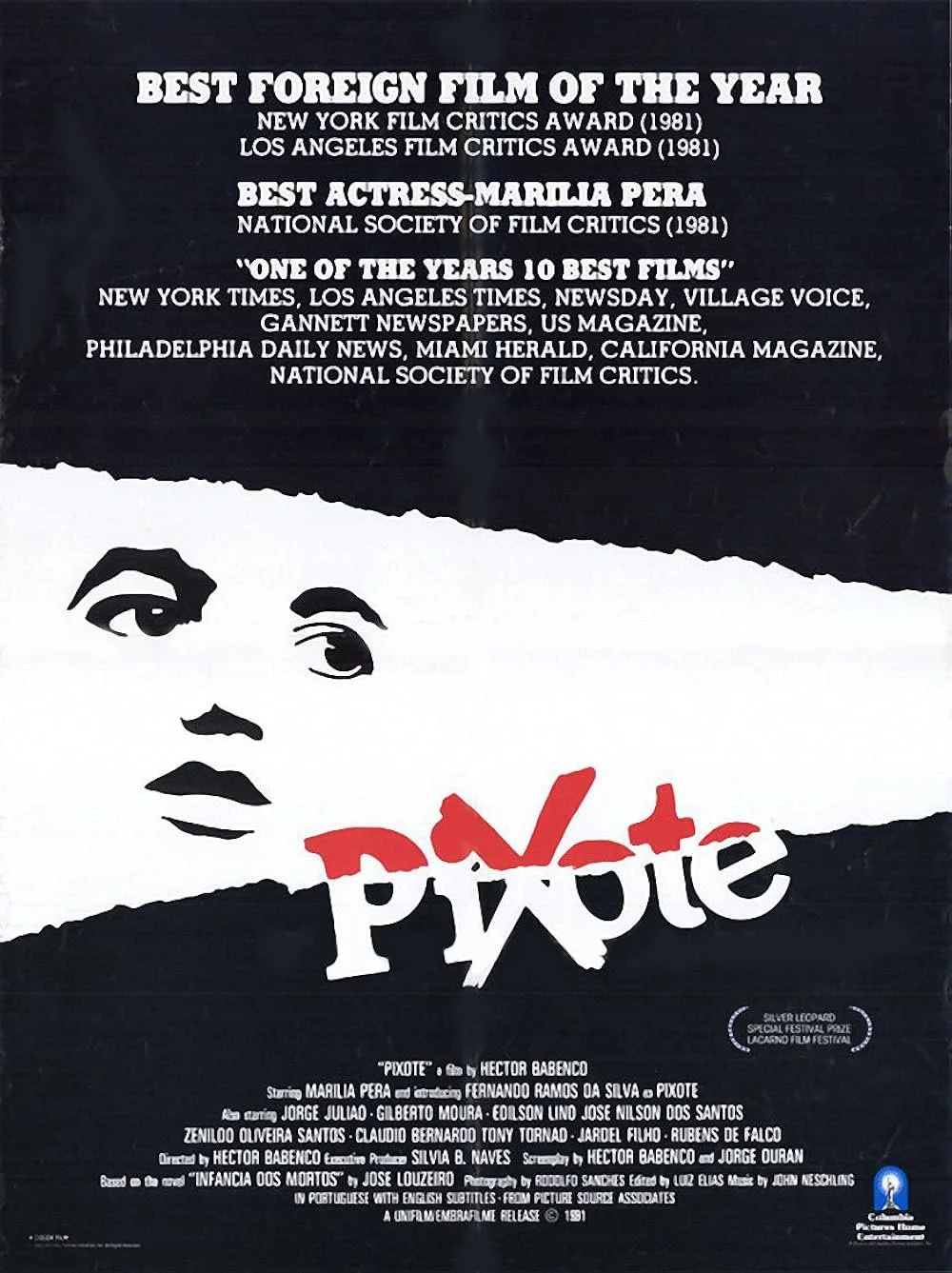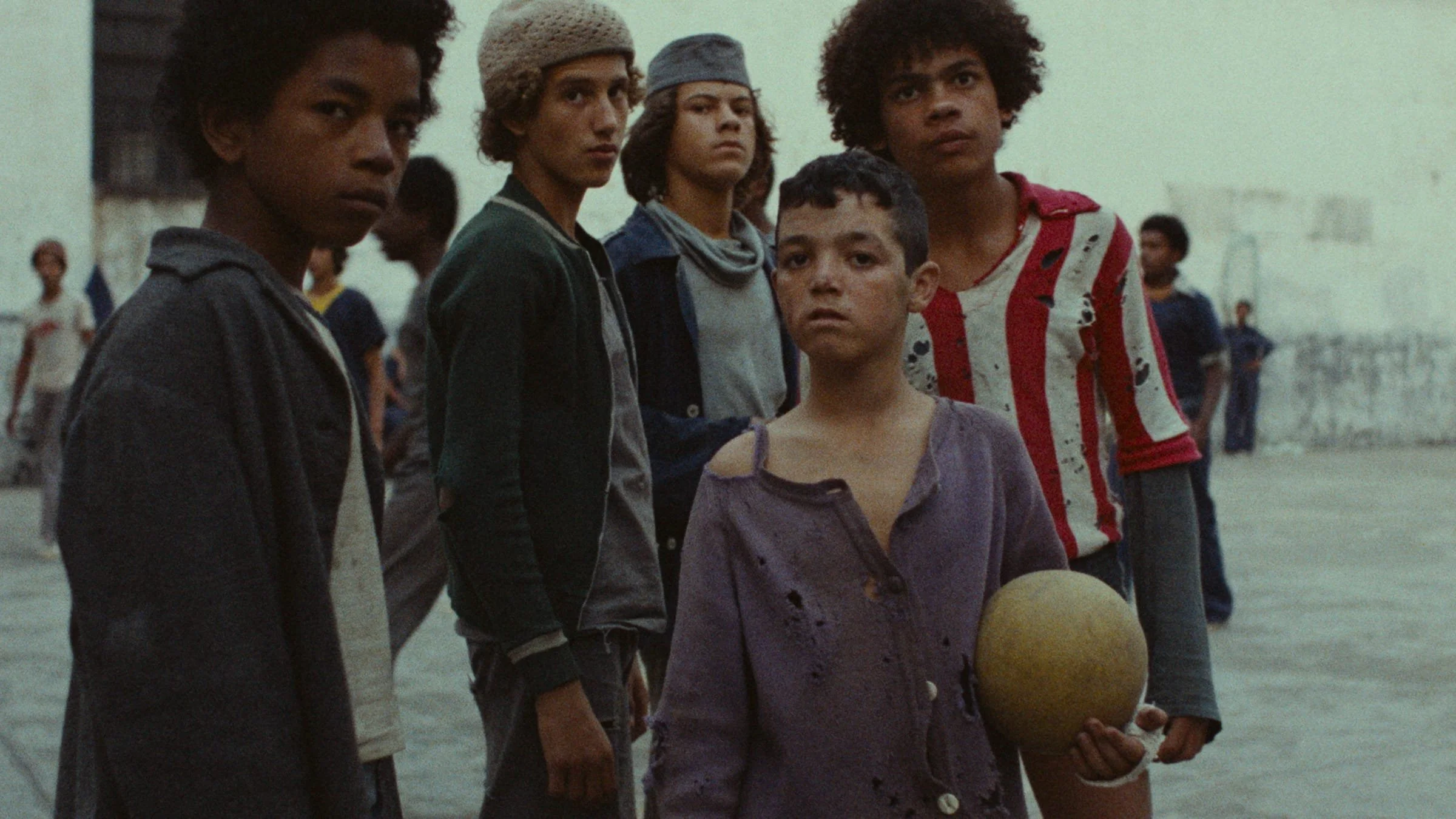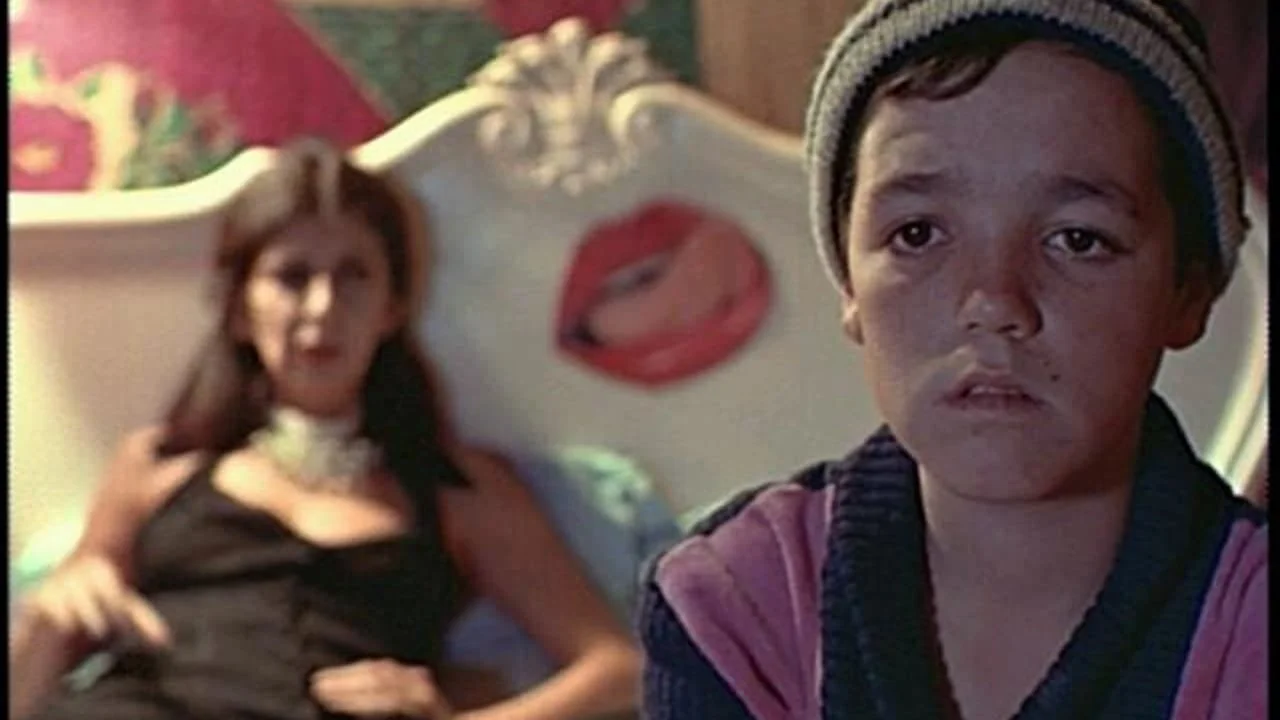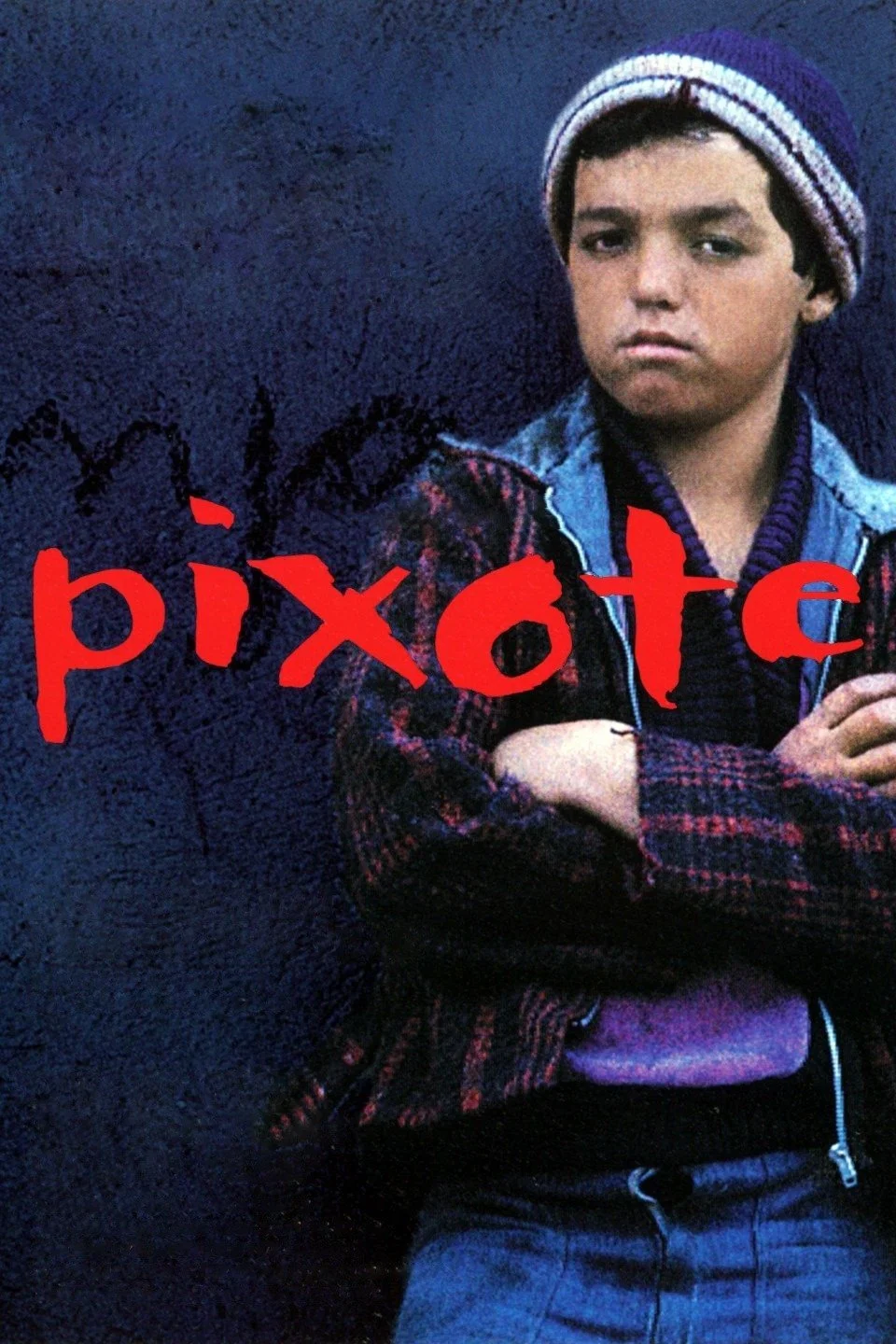DIFFICULT: Hector Babenco's PIXOTE (co-adapt & dir by Hector Babenco, w/ Fernando Ramos da Silva, Embrafilme, 128mns, Brazil, 1980)
It's a piercing realization to see a neorealist Brazilian movie like the classic PIXOTE and realize that movies like IT, not movies like SALO or THE HUMAN CENTIPEDE, are the movies that are truly hard to watch.
Movies made, at least in part, to provoke, shock, scandalize because of their outre subject matter, are still often aestheticized enough to give us distance. A middle school edgelord can watch them and boast.
Movies like PIXOTE are existential confrontations with no answers. They shake us to our core. They break our feet of clay.
PIXOTE based on the novel "A Infância dos Mortos" by José Louzeiro follows our titular 10 year old from corrupt abusive reform school to the mean streets of Sao Paolo and Rio De Janeiro. Things only get worse. Pixote does his best to play cards he can't even read.
This writer was not prepared for a movie that opens with a gang rape that Pixote observes silently from a few bunks away.
And while nothing comes quite that close to utterly unbearable, this early scene is a fair warning to the viewer. Nothing will be easy in this movie.
Directed by Argentine-Brazilian moviemaker Hector Babenco who would get noticed for this movie and come to Hollywood to direct movies like KISS OF THE SPIDER WOMAN, IRON WEED, AT PLAY IN THE FIELDS OF THE LORD, PIXOTE is a series of blasphemies.
No child should go through what Pixote does. Tens of millions do.
The movie is a series of neorealist episodes-some horrific, some comedic, some poetic, most some mix of all-of the brutalities Pixote endures.
Early scenes alternate between the corruption of the reform school adults, who use the kids to help the police cover up crimes or have ready made suspects, and moments of genuine joy. A family day concert where some of the boys sing Brazilian pop songs for the other boys and their visiting family members feels like a scene from a Truffaut or Wes Anderson movie.
They could get framed, killed, or raped in the reformatory so it’s no mystery why the boys decide to try the real world. . .which is even worse.
And it would probably feel that way in real life as well. But the scene also shows us how ineffectual the Moms, Dads, Aunts, Uncles, Grandparents are to these kids. The kids-at least when it comes to food and a roof-are better off here then at home.
But several unspeakable acts of hypocrisy and corruption by the adults lead Pixote and several of his friends to break out and try their luck on the streets.
The horrible irony being that possibly, for all its dangers, the reform school is the better of the two evils.
Out on the streets, the boys try to be men though the real criminals and predators just see easy gullible marks.
The last third of the movie finds Pixote playing pimp to an alcoholic sex worker. And though there are moments of grace, there are far more moments of cold misfortune and tragedy.
The movie also has a shocking (and refreshing) humanist take on the homosexuality and bisexuality of Pixote's world. Though there's a lot of male posturing, there's also a lot of pragmatic love and acceptance.
In many ways, the closest sibling movie to PIXOTE is Luis Bunuel's 1950 LOS OLVIDADOS. Another unsentimental classic about poor kids and viciously hypocritical adults in the tough day to day of Mexican slums.
And it's a surprise (and a testament) that Martin Scorsese's Film Foundation restored the movie with financing from George Lucas (!!).
The final third of the movie which follows Pixote’s relationship acting as thief for a sex worker is about as devastating as movies come…
It's almost a certainty a movie like this could never be made with such unflinching scene construction in the United States. And even in 1980 Brazil, it feels like Babenco was pushing it.
The real tragedy is that the incredible actor Fernando Ramos da Silva who plays Pixote with a ferocious pragmatism was, like many of his child co-stars-picked FROM the poor favelas ("ghettos") of the big city. The movie shot him to fame.
But his illiteracy and background found him soon back on the streets as a teen and he was killed by police officers at 19 in an incident still cloaked in mystery.
PIXOTE is actually a nickname in Portuguese (something not explained in the movie as Brazilians would just know it automatically) which means "little jab or little pick". So our main character doesn't even really have a name. Just a nickname given to him at some point by the other orphaned souls he found himself in the river of existence with.
This movie agitates a hornet's nest of questions as to its making but even more as to the reality it depicts.
For those of us lucky enough to have been born into the middle classes or above, we at least had some kind of chance, though it may have been corrupted by trauma, dysfunction, familial strife, violence.
The homeless and near homeless poor of the world are often born into poverty and die in poverty and suffer unspeakably in between. Not always. There is grace. There is self-will. There is opportunity.
But there's also a reality almost unbearable to confront. Kids like Pixote have to. We can always turn off the movie.
Craig Hammill is the founder.programmer of Secret Movie Club




